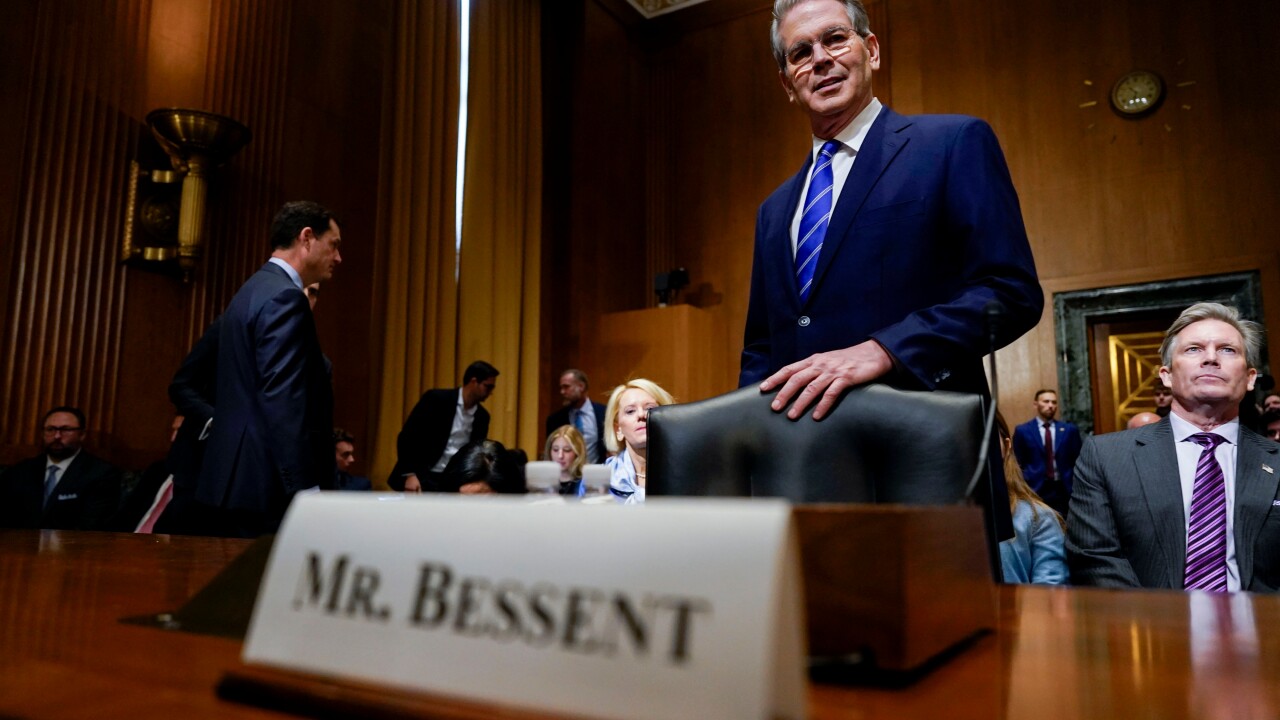The implosion of Sam Bankman-Fried's FTX empire hasn't dimmed the enthusiasm for digital currency among crypto fans in the U.S. Capitol.
With skepticism about cryptocurrency growing among members of Congress, a handful of lawmakers, including Republican Sens. Cynthia Lummis of Wyoming and Pat Toomey of Pennsylvania, are trying to convince colleagues that the FTX fiasco doesn't diminish the underlying value of digital currency.

"There are two conversations going on. One is FTX, and the other is digital assets," Lummis said on Bloomberg Television's "Balance of Power with David Westin. "We're conflating the two in some of these discussions."
Still, FTX has wedged open a split between some Republicans and Democrats. Since last month's collapse of FTX and other turmoil in the crypto market Democrats are more likely to say that the fraud charges against Bankman-Fried demonstrate a pattern of unsavory behavior in the industry, while many Republicans see FTX as an outlier.
At a House hearing Tuesday on FTX, Rep. Brad Sherman, a California Democrat, who has long wanted to ban cryptocurrencies, said his fear is that people will look at Bankman-Fried as one snake in a Garden of Eden, but that, in reality, "crypto is a garden of snakes."
Rep. Tom Emmer of Minnesota, the incoming GOP whip and co-chair of the Blockchain Caucus, said during the same hearing that FTX represented a business failure and a crime, "not a failure of technology."
"For the most engaged members of Congress on crypto policy, the FTX collapse remind us of why we care so deeply about this technology — decentralization is the point," Emmer said.
Another House Republican, Patrick McHenry, who is poised to lead the Financial Services Committee next year, said he's "a believer in digital assets and the potential it has as a foundation stone of the next internet."
Toomey, the top Republican on the Senate Banking Committee, held as much as $45,000 in digital assets as of last year, according to the most recent financial disclosures on record. He said he continues to see plenty of value in digital currencies, adding that they should be regulated, starting with stablecoins, which are backed by underlying assets like dollars.
Echoing Lummis, Toomey, who is retiring at the end of this term, said at a Banking Committee hearing on Wednesday that "FTX and cryptocurrencies are not the same thing. FTX was opaque, centralized and dishonest. Cryptocurrencies usually are open-source, decentralized and transparent."
Lummis has proposed legislation with Senator Kirsten Gillibrand, a New York Democrat, to create a regulatory framework for crypto, one of several that have been proposed.
Lummis argues most digital currencies should be regulated by the Securities and Exchange Commission but bitcoin should be regulated by the Commodity Futures Trading Commission as a commodity.
"The case for bitcoin as a store of value is solid," she said, pointing out that it is limited in number, is fully decentralized and isn't controlled by anyone. "It has the characteristics of a commodity."
Lummis's disclosure showed holdings of $100,001 to $250,000 in bitcoin as of last year, though she said Wednesday her assets are in a blind trust, "so I don't know whether I have bitcoin" currently. Crypto valuations have also decreased substantially over the course of this year.
Lummis said she's bullish on getting legislation passed next year, with the new House Republican majority and Gillibrand working with the Biden administration, with the goal of forging a bipartisan and "asset neutral" bill.
"We're going to make a full-court press," she said.
Republican Sen. Thom Tillis of North Carolina, another member of the Banking Committee, also sees the potential for bipartisan legislation next year on regulating crypto and nonbank fintechs.
"It may very well be if we research it that it may need to be banned, but I'm not there yet," he said, adding that he wouldn't invest in crypto himself yet. "It's not proven."
— With assistance from Jarrell Dillard, Allyson Versprille and Madison Mills.






